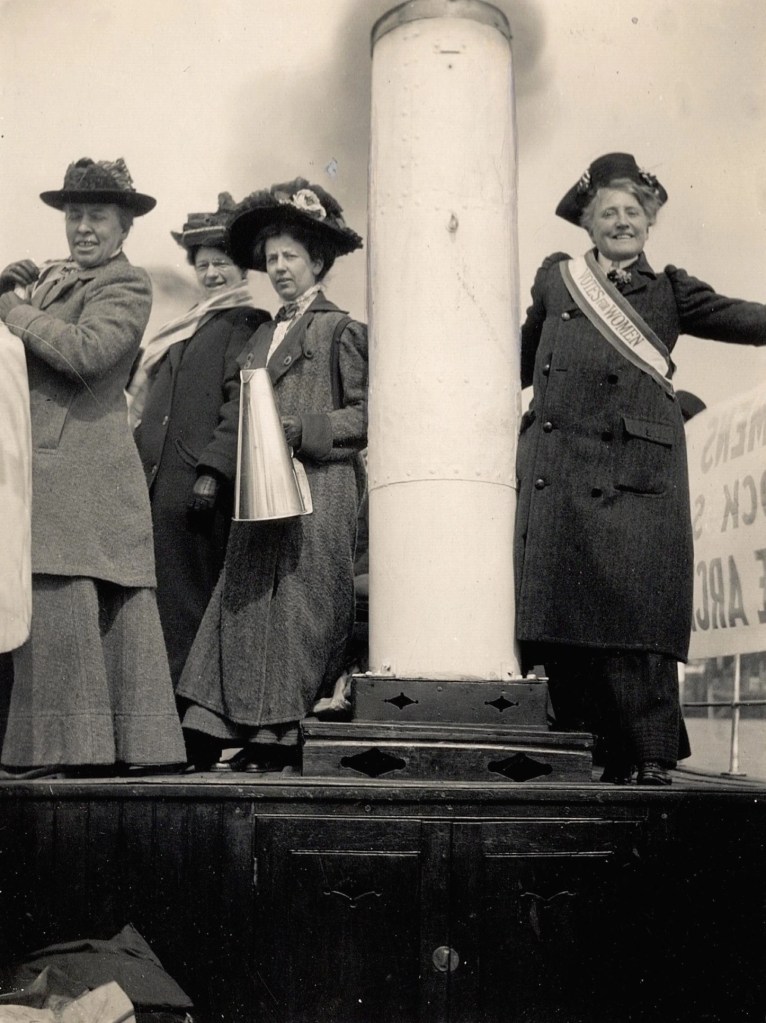
1 April 2024
By Tim Koch
Tim Koch is up to his neck in it.
It may seem odd that my first post following this year’s Boat Race does not concern some boats going a bit faster or a bit slower than others and some people being happy and others being sad at the finish. However, when for example, the normally sensible British Sunday newspaper, The Observer, calls 2024 The E coli Boat Race, I think that some sort of quick response is required.
Recent testing around Hammersmith Bridge by the charity River Action found at the worst point up to ten times the amount of Escherichia coli (“E coli”) bacteria than is allowed for bathing water status. The UK has combined sewage systems which mean rain and sewage share the same pipes, so if there is too much rain, sewage treatment works can be overwhelmed. Sewage (“diluted wastewater”) is released into waterways to prevent the system from backing up.
The Guardian newspaper of 29 March wrote:
Throughout the Boat Race’s 195-year history, it has been regarded by the rest of the world as one of those peculiar British eccentricities, like Marmite and pantomime, that are best ignored. Not this year.
The New York Times, Fox News, ABC, CNN and numerous other international media have run stories in the buildup to Saturday’s race – although it is what is floating in the Thames, rather than on top of it, that has piqued their interest.
As Thursday’s New York Times put it: “The warning was stern: Do not enter the water. Not because of the tide. Not because of sharks. Because of the sewage.”
Few would disagree that the release of raw sewage into the Thames and other UK rivers is a disgrace that has many possible detrimental health effects. According to the BBC, publicly available data showed that the water company had discharged sewage into the Greater London area of the River Thames for 1,914 hours from the start of 2024 up to 26 March.

Water supply in Britain was privatised by Margaret Thatcher in the 1980s but last week, the Communities Secretary, Michael Gove, a woke-free man on the right of the ruling centre-right Conservative government, denounced the leadership of Thames Water as “a disgrace” and accused it of taking excess profits while failing to invest in badly needed infrastructure. Taking water back into state ownership has been mooted even in circles not usually prone to such lefty-liberal ideas.
The response of the media to all this has been strange. It is an important news story that should stand up on its own but even media outlets with usually decent journalistic standards have decided that it can only be “sold” or “spun” by associating it almost exclusively with the iconic Oxford-Cambridge Boat Race. It seems to solve two problems for the journalists: how to sex up an unpleasant story about human excrement and how to sex up the boring old James Cracknell free Boat Race? Well, just put the two together and they complement each other. Problem solved.
It is very reminiscent of the public awareness of another recent important news story. British readers will be very aware of the long running scandal whereby the Post Office had for several years accused many people who run sub-post offices of stealing money when some in management knew that the apparent thefts were because of software errors. Disgracefully, many innocent and respectable people went to prison but sadly the story only really got the publicity and political action that it deserved when a TV drama was made about it.

Using the Boat Race to publicise a cause is not new. Suffragettes wanting votes for women in the 1900s, republicans wanting a united Ireland in the 1930s and more recently, a public schoolboy opposing “elitism” and some protesters opposing fossil fuel projects have all attempted to use the event to advance their cause. Last Saturday, two men attached themselves to Chiswick Bridge in a protest concerning the Middle East. Police intervened and no disruption was caused to the race.
While I do not blame River Action for possibly milking the Boat Race angle to get its important message out, we seem to have reached a stage where often the importance of a story bears no relation to the publicity it gets. Much news now seems to need a “human interest” angle or, even better, a “celebrity” involvement to be of interest.



If the pre-race reporting was not ideal, the post-race media has been worse and has not put the event in a good light. The impression has been given by many sources that the Oxford men’s unexpected loss was due to E coli induced sickness. This was based on comments by at least three members of the Oxford crew. There are obvious problems with the use of quotes from such interviews particularly in an age when many people get their news from sound bites on smartphone news feeds.
If you have just unexpectedly lost a 6,800 metre race that you have trained nine months for, you are physically and mentally exhausted and are not in a good frame of mind to conduct a nuanced and thoughtful interview. Even if you can produce coherent thoughts, single sentences can be taken out of context or given undue stress. At least one of the Dark Blues had his quotes used by some outlets in a way that made him look like someone desperately searching for excuses:
We’ve had a few guys go down pretty badly with E coli strain…
This morning I was throwing up…
It would have been ideal not to have so much poo in the water…
However, if something like the full interview is read, a different impression is given:
I will also say, and this is in no way to take away from Cambridge, but we have had a few guys go down pretty badly with the E coli strain.
This morning I was throwing up and I really wasn’t sure there was going to be a chance for me to be in the boat, but I ultimately kept that quiet and that’s on my shoulders.
I’m not sure if that was the right choice because I really didn’t feel like I had much to give in that, but you know it would have been taking one of the top guys out of Isis and ruining their chances so I felt like we needed to give them a fair fight.
But yeah it would have been ideal not to have so much poo in the water but that’s not to take away from Cambridge.
They’re a talented crew and I don’t know if we’d have had a chance to get them even if we had been on form, it’s in no way to make excuses.
A criticism of the rower concerned is that he could not know that any sickness was due to river borne E coli. Also, if a number of the crew were in fact “down pretty badly” with some illness during Tideway Week, why were they not rested for a time? On the day after the race, the Guardian reported that the Boat Race Company issued a statement saying:
The Boat Race is aware of… comments about a sickness bug affecting their preparations this week. We’re not in a position to speculate about the causes of this sickness bug but we have contacted Oxford University Boat Club to seek further clarity.

Another member of the Oxford crew appeared more reluctant to directly blame river pollution. Again, if a fuller interview is read, he does not appear to be the petulant loser that selected quotes can make him seem, indeed he articulates some of the best sporting traditions of the race:
This week, we’ve had three people who have had to miss sessions because they’ve had stomach bugs, essentially. Whether that’s related to E coli in the river, I don’t know, but it’s certainly not helped our campaign, and it’s a poor excuse.
It’s not an excuse, but it definitely hasn’t helped our preparation. We obviously had a bit of a messy start, not the start we wanted. We had a great warm-up, nothing went wrong in the warm-up, so maybe that was not something we were expecting.
It felt like we never quite got on the rhythm we were hoping to go onto, but at the same time it wasn’t terrible. We were doing a decent job. Cambridge I think today were just a quicker group, and that’s hard to take.
A third member of the Oxford crew (who had not been reported as being ill during the week) was quoted as saying, I’m sorry but I’m really ill. I’m not going to go to the (post-race) dinner. Again the impression given is that he was suffering from an E coli related complaint. However, it is very possible that he simply felt “sick” because of unexpectedly losing and was understandably not in the mood for a party.

This tradition of throwing the winning coxes into the river was not carried out. The Guardian carried a less used quote from Ed Bracey, the Cambridge men’s cox:
(Bracey) said that despite widespread concerns about pollution he would have been happy to be thrown in the water by teammates in line with tradition. “We’ve been splashing about in that for weeks and weeks,” he said.
But he was swiftly overruled by the Cambridge coach, Rob Baker. “I know he would like to but we don’t want to risk it,” he said. “Absolutely not. We’ve been really lucky – we’ve been healthy – but we don’t want to take any risks.”
Ultimately it is true that Oxford suffered because of dirty water – but that was from having to row in their opponent’s puddles.
The races are on the Boat Race YouTube channel.
